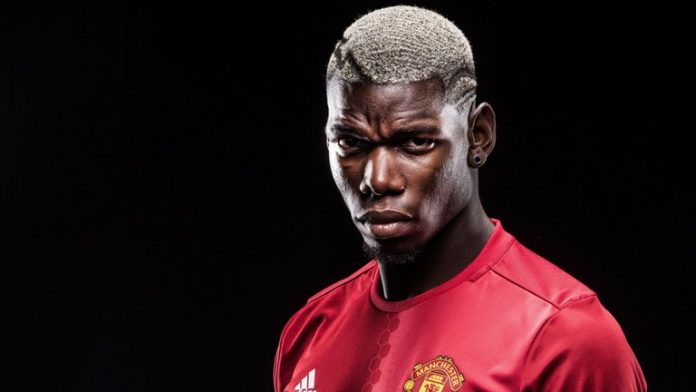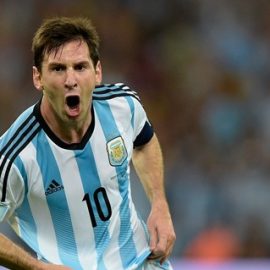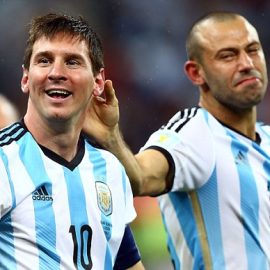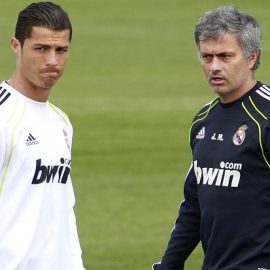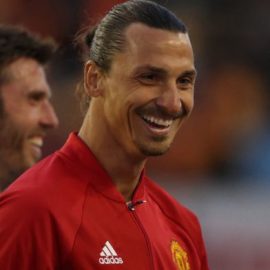In an exclusive interview with the Spanish daily, El Pais, from Madrid, Zinedine Zidane discussed his lingering strong feelings about his last professional appearance in Berlin. He would rather die than apologize to Marco Materazzi.
“Cada genio opera en un espacio irracional, inexplicable, y Zidane lo manifestó hasta el último gesto de su carrera. Sucedió cuando estaba a punto de conducir a Francia a la conquista de la segunda Copa del Mundo. En lo más áspero de la disputa de la final contra Italia, en un córner en el minuto 110, propinó un magnífico cabezazo al defensa italiano Materazzi.” Zidane fue expulsado. Francia perdió la Copa y Zidane nunca más volvió a ponerse unas botas.
Every genius works in an irrational space, inexplicable, and Zidane manifested this up until the last gesture of his career. It happened when he was close to leading France to their second World Cup triumph. In the most bitter moment of the final against Italy, from a corner in the 110th minute, he launched a magnificent head butt at the Italian defender, Materazzi. Zidane was red carded. France lost the Cup and Zidane never again laced up his boots.
“Sí, claro que me lo reprocho a mí mismo”, dice Zidane sin siquiera mencionar a su adversario; “pero, si yo digo ‘perdón’, también estaría admitiendo que lo que hizo él fue normal. Y para mí no fue normal. En el campo pasan cosas. Me ha pasado muchas veces. Pero ahí no pude aguantar. Porque además… No es una excusa. Pero mi madre estaba enferma. Estaba en el hospital. Esto la gente no lo sabía. Pero era un mal momento. Más de una vez insultaron a mi madre y nunca contesté. Pero ahí… Y pasó. Y pedirle perdón a éste… Si hubiese sido Kaká, un tío normal, un tío bueno, claro que le habría pedido perdón. ¡Pero a éste! Si le pido perdón, me falto el respeto a mí mismo y a todos los que quiero con toda el alma. Pido perdón al fútbol, a la afición, al equipo… Después del partido, entré al vestuario y les dije: ‘Perdonadme. Esto no cambia nada. Pero perdón a todos’. Pero a él no puedo. Nunca, nunca… Sería deshonrarme… Prefiero morir”.
“Yes, of course, I blame myself” said Zidane without mentioning his adversary. “But, if I say ‘I’m sorry’, it would also be admitting that what he did was normal. And for me, it was not normal. On the pitch, things happen. It happened to me many times. But I couldn’t put up with it there (what Materazzi said). Because in addition… There is no excuse. Because my mother was ill. She was in hospital. People didn’t know that. But it was a terrible moment. More than once they insulted my mother and I never responded. But there… And it happened. And to ask for forgiveness to that… If it had been Kaka, a regular bloke, a good guy, clearly I would have apologized. But to him! If I apologize, I lose my self-respect and all that I love with my soul. I apologize to football, to the fans, to the team… After the game, in the tunnel, I said to them: ‘Forgive me. This doesn’t change anything. But apologies to everyone.’ But to him (Materazzi) I can’t. Never, never… It would be dishonorable to me… I prefer to die.“
Zidane procura extraer una lección edificante de un episodio que le desagrada recordar. “A los jóvenes hay que decirles que se puede jugar de manera más noble”, advierte; “que en el campo siempre pueden pasar cosas desagradables. Pero que el fútbol es un deporte y no tienen por qué haber humillaciones. Yo hablaba poco, pero a los rivales también les decía cosas. Todo depende de las personas. Hay rivales muy graciosos, que te dicen cosas y te hacen reír. Pero hay gente malvada. Y a esos tíos no los quieres ni oír hablar. También me encontré rivales que me hicieron reír. Y árbitros muy graciosos. Y compañeros que me hacían reír todos los días, como Ronaldo, un crack en todos los sentidos”.
Zidane looks to extract a teaching lesson from an episode that is unpleasant for him to recount.
“To young people, you have to tell them that you can play in a more noble manner.” He adds, “On the pitch, unpleasant things can always happen. But football is a sport and there don’t have to be humiliations. I spoke little, but to rivals, I would tell them things. Everything depends on the other persons. There are very gracious opponents that tell you things and make you laugh. But there are wicked people. And to these blokes you don’t want to say or hear anything. I also encountered opponents that made me laugh. And very gracious referees. And teammates that made me laugh every day, such as Ronaldo, a great player in every sense.”
Spanish language source courtesy of El Pais, March 1, 2010
Spanish to English translation by Steve Amoia of World Football Commentaries
Add Sportslens to your Google News Feed!
